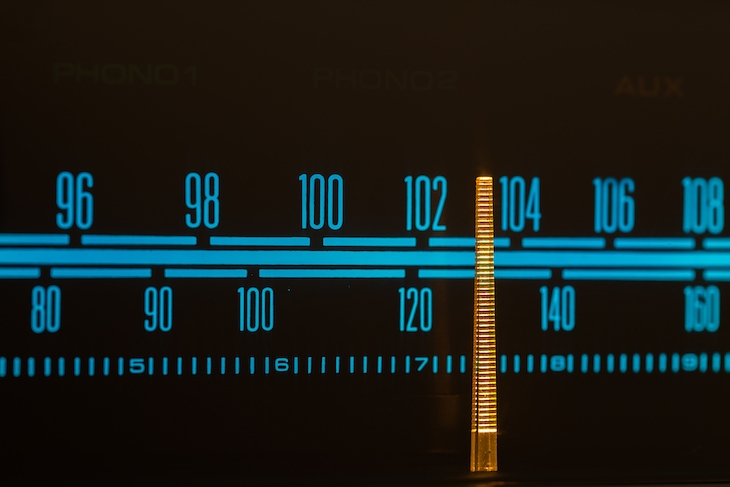‘You’re thinking these girls all wrong,’ Miss Mai tells Enid in Winsome Pinnock’s play Leave Taking, adapted from the recent Bush Theatre revival for Radio 3 (and produced by Pauline Harris). ‘They don’t know where they come from.’ Miss Mai continues: ‘These girls got Caribbean souls,’ but they’re living in south London.
Viv and Del have been taken to see Miss Mai, known locally as an obeah woman, by their mother Enid for a palm reading, a prediction, or perhaps a casting out of demons. Del has got into bad company, has lost her job at the burger bar for being cheeky, and fears she must be pregnant. Viv was the studious one, her mother’s great hope, but is now beginning to wonder what Shakespeare has to say to her. ‘Me and these teachers, we don’t feel the same things.’
Pinnock, who is credited as ‘the godmother of black British playwrights’, premièred Leave Taking in 1987 but it is if anything more relevant today. Enid followed her husband to London from Jamaica but when he hardens under the constant pressure of the everyday racism he experiences at work they separate painfully and she’s left to bring up her daughters single-handed. They in turn find their mother difficult and embittered. ‘You don’t exist. How you going to teach your children that they don’t exist?’ says Enid. ‘I was too black. My hair too dry. Everything that make you invisible in the world.’
The dialogue is so sharp, so purposeful, never a word wasted to get across a thought, a feeling, that Pinnock’s drama takes us right inside the experience of being black and an immigrant while also telling us something about what it is to dream, to lose faith, to stay connected to those closest to you. ‘I would chop off my hand if it would help you,’ Enid tries to convince Del. ‘But now it’s up to you.’ The cast, too, is superb, each character made convincingly real, their words powerfully delivered by Sarah Niles, Seraphina Beh, Nicholle Cherrie and Claire Benedict, and there’s only a whisper of music, nothing to disturb the flow of words.
Last summer the journalist Colin Brazier wrote a piece for this magazine about the funeral he prepared for his wife, who died from cancer leaving him with six young children. It was specifically not a celebration of her life, with eulogies and poems, but a full-scale Catholic requiem mass, everyone told to dress in black, not a pink scarf or red rose in sight. Now in a special Heart and Soul for the World Service (produced by Henrietta Harrison) Brazier attempts to explain why he chose to mark his wife’s death in this way and to explore how and why funerals have changed in recent years.
He felt that the mass for his wife gave shape and meaning to how he felt; it ‘purged him’ of his grief, ‘emptied him out’. What, then, do you do if you have no faith, no ritual to fall back on? What’s left?
One funeral director reveals how more than half his clients have little or no connection with religious belief. His company encourages its staff to lay on whatever their clients ask for, as long as ‘it’s legal and decent’, and boasts the fact it once organised a funeral procession via a McDonald’s for a family whose teenage child had died. Brazier, though, is concerned that such ‘a secular toolkit’ leads to a loss of meaning, a denial of the reality of death. When David Bowie died, for instance, there was no ceremony but ‘a direct cremation’, when the body is taken straight from the hospital mortuary (often just a warehouse) to the crematorium where the body is burnt and the ashes returned to the family.
It sounds brutal but probably not to those migrants who end up in Calais waiting for the chance to take a boat to the UK. They will be lucky to make the crossing alive. No funeral for them. As Cole Moreton reminds us in the first part of The Walk: Across the Water on Radio 4 (produced by Jonathan Mayo), it’s only 21 miles across the Channel between Calais and Dover but even a slight gale is treacherous for small boats. Moreton wants to find out what it’s like to live ‘on the edge’ but also at the centre of the biggest story for years (thankfully, there’s no mention of the B-word).
He talks to Beatrice whose husband was a border guard in Calais. After he died she met a migrant from Iran, fell in love, and bought a boat so that he and his friends could cross over to the UK. They were lucky to make it. She now visits him in Sheffield every weekend. Moreton also goes to the Café Polyglot where Mary and Peter are to be found every Tuesday, enthusiastically talking French. They cross the Channel for the day each week, leaving Folkestone by train in the morning, arriving in Calais by 2 p.m. (French time) in time for a bit of shopping, then on to the café to talk French and back home by nine o’clock (British time).






Comments